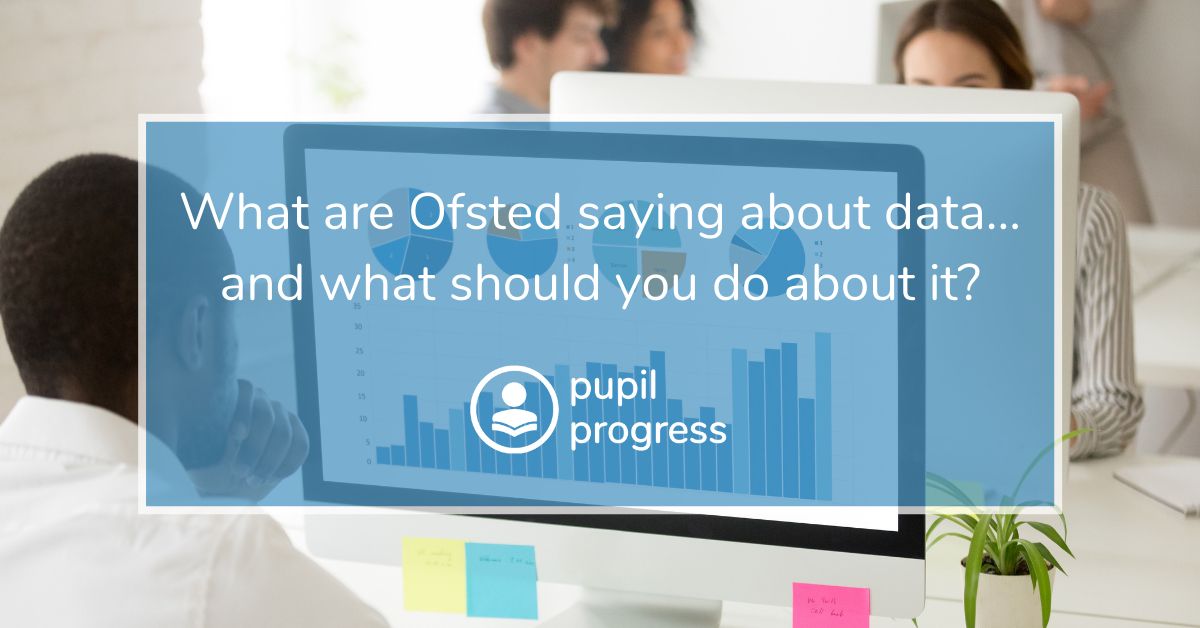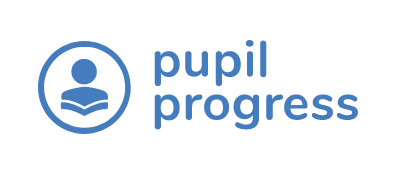What are Ofsted saying about data… and what should you do about it?

The finalised version of the new Ofsted Framework has now been published, which will govern all school visits from September.
The focus on the way internal data is used in schools has dramatically changed. The intentions behind the changes show that Ofsted has taken onboard the advice from Workload Advisory Group Report, and are now asking more powerful questions “about whether schools’ attainment data collections are proportionate, represent an efficient use of school resources, and are sustainable for staff.”
So, what are Ofsted saying about the use of data in schools?
The new Ofsted framework is far more focused on the use of internal data in schools. Ofsted has clearly stated they are “not going to verify it or use it to make judgements, but will look at the way you use assessments to inform the delivery of your curriculum and support students progress.”
It’s far more important for subject leaders to show an understanding of the important role internal assessment data can have when developing powerful teaching and pupil progress strategies. Your internal data does not need to prove progress, but should clearly show where your department is now and what your next steps will be.
The actual data you collect, organise and analyse should support you and your team to take the actions necessary to raise achievement. It doesn’t need to be in a format that is clear for the inspectors, as they will not use any of your data as evidence of the progress students are making.
The new framework essentially suggests that assessment-focused discussions will be structured as such:
- This is our assessment plan
- The last assessment we did was ABC
- In analysing it we felt that DEF was strong and GHI needs to be improved
- As a result we did XYZ
You don’t actually need to show the data that led you to any one decision. You can show the inspectors this data if you feel it would support your discussion. This is clarified by Ofsted’s National Director Sean Harford, who said:
“What inspectors do want to see is the assessment information your school uses, in the format that you find works best, to help you know how well your pupils are doing at the point they are at in your curriculum. And then, crucially, what you do with that information to support better pupil achievement.”
Even if the results are suggesting the progress or achievement is not where you hoped it would be, you don’t need to worry, as the Inspection Framework states that they will not use the data as evidence relating to progress.
The focus is on the actions you take relating to the data. This is because there’s a far better understanding that progress is not linear. As part of your discussion, you should be able to demonstrate that the data you have based these decisions on is valid and reliable.
So, what does this mean in terms of actions?
The new Ofsted Framework focuses on the Quality of Education in regards to Intent, Implementation and Impact. These are then pulled together to give a holistic grading for the school. The focus on internal data mainly comes under the Implementation section, but there are references to it in Intent and Impact.
To support you as a subject leader to keep on the right track, we’ve digested the expectations set out by Ofsted and put together suggestions of what this means in practical terms.
INTENT: share the assessment plans with your teams and leadership
Know what assessments you are doing and when. Ensure your assessment plan is proportionate and represents an efficient use of teachers’ time and resources. Ask yourself:
- Is it sustainable to have massive, teacher-marked assessments as regularly as you have stated?
- How will you manage marking workload if a teachers’ timetable means they have one week to turn around marking for three or more classes because the assessments for different year groups all fall in one week?
- What will be the negative impact on their planning and teaching that week?
Know why you are doing the assessments and specify what actions are you expecting to take following those assessments. This may include:
- Gradual building of a picture of progress
- Encouraging revision by students & reflection on their own progress
- Reporting to parents
- Targeting students for specific interventions
- Identifying weaknesses in teaching
- Identifying areas for curriculum development
- Identifying areas for focus for revision periods in your Long Term Plan
- Does the data show the progress of students towards expected endpoints?
- Are there groups of students that would really benefit from more targeted support?
- Are there broader changes you need to make to your curriculum?
- Are there areas of your teaching that need to be reviewed?
- Do you need to provide extra support for particular teachers with groups of students?
- Are there areas of subject knowledge weakness in your teaching team?
If the actions for the assessment don’t match time input for teachers and students, then question whether that assessment can be made smaller, more focused or cut completely.
It may be that you decide it can be peer or self-marked if it is a low stakes assessment, which has the added bonus of being a great consolidation activity for the students.
Our Guide To Reviewing Your Subject Assessment Strategy has tools and tips on how to make sure your plans for assessment are fit for purpose.
IMPLEMENTATION: focus on data for teachers and students
The data you collect as a department should be used most by your teachers and students (see our blog: Forget Meaningful Data: Think About Your Students for more on this).
Giving your teachers the ability to analyse their own data means they can immediately put actions into practice in the classroom. Support them with this during faculty meeting time or 1-1 support sessions. This encourages Distributed Leadership and allows teachers to have more responsibility over their own data and improving results in the classroom. It will reduce the amount of extra work that needs to go on outside the classroom to close gaps in learning. By empowering your teachers to engage with the data, you will see your results rocket!
Inspectors will easily be able to see that your assessments are linked to classroom practice. What they don’t see they may pick up on in triangulation, for example in the student interviews, conversations or by looking through student books.
Some of the actions following assessments they may see evidence of may include:
- Student work showing review lessons following assessment
- Formative feedback lessons with DIRT (Dedicated Improvement & Reflection Time)
- Flexible lessons built into the LTP to address subject weaknesses
- Revision plans based on weaknesses highlighted in assessment
- Activities designed to support students’ self-reflection and take actions following assessment, developing independent learners
- Adjustments in seating plans
- Adjustments to lesson plans that are related to a previous assessment
- Differentiated lesson activities based on weaknesses identified by assessments
Involve your students in the conversations about assessments and data. If students know where they’re at, they know the actions they need to take. By having a good understanding of their current position, they’re more empowered and in control of their own grades. This helps to relieve stress and anxiety. If students are getting anxious about their grades, then your teachers are in a much better position to have a conversation with their students and alleviate their concerns and decide on an action plan together.
IMPACT: focus on data for leadership decisions
The broader analysis of internal assessment should influence actions that need to be taken across the whole subject. For example:
- Does the data show the progress of students towards expected endpoints?
- Are there groups of students that would really benefit from more targeted support?
- Are there broader changes you need to make to your curriculum?
- Are there areas of your teaching that need to be reviewed?
- Do you need to provide extra support for particular teachers with groups of students?
- Are there areas of subject knowledge weakness in your teaching team?
This may not be based on one assessment, but on the data from multiple assessments because it will be more reliable. Make sure you have the time to analyse, and plan the actions and a time where you can actually make sure the actions are implemented. Choose your in-depth analysis for the times in the year where it will be most useful and have the most impact for the year groups you are looking at.
The data you collect should impact what you do in the classroom, or influence your departmental strategy to supporting students making progress. That means your tracking and student reports need to enable you to easily identify areas to address: quickly and easily. Our Reviewing Your Subject Assessment Strategy resource pack contains tools to help you to collect meaningful data, and an example of what good quality subject tracking includes:
It’s not for Ofsted, it’s for you
The new framework should support teachers, subject leaders and senior leaders to keep the right focus, which should always be on the students.
The data you collect is for you. How you choose to use it is the most important thing. If the data you collect doesn’t result in beneficial actions for any of the key stakeholders, then you really have to question why you’re collecting it. If you feel you have no choice and are being dictated to in terms of the data you are collecting, then make it work for you through the actions you choose to take with it.
Ofsted have made it clear in the framework that the school’s assessment system should support the pupils’ journeys through the curriculum, and what you do with that information should support better pupil achievement. They will then evaluate how well your school is supporting pupils to progress and deepen their knowledge, in order to promote understanding and develop their skills.
If you keep the data and the actions tightly linked, and your support for students learning at the heart of your assessment and data, then you are in a much stronger position when you come to your next Ofsted inspection.

Barnaby Grimble
Co-founder
Chief Product Officer

Comments